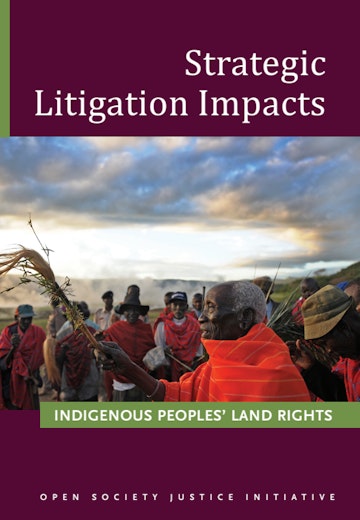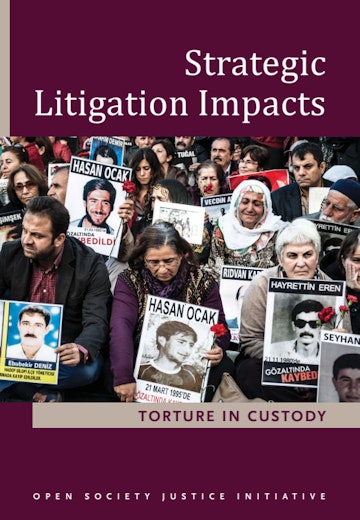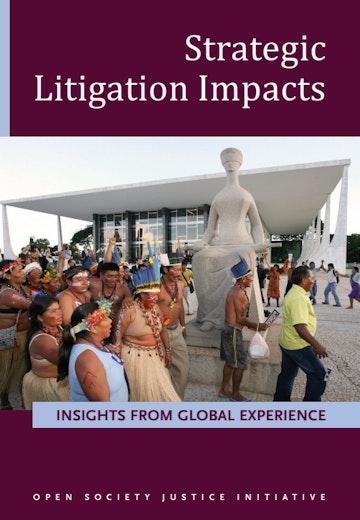Strategic Litigation Impacts: Insights from Global Experience
Defending human rights requires an array of tools. One of the most powerful is strategic litigation: using the courts to effect large-scale social change. Strategic, or public interest, litigation has tipped the balance in ending segregation in state schools, securing reproductive rights for women, and ensuring freedom of the press, among other contested but fundamental rights.
Yet strategic human rights litigation can also be costly, slow, and risky. Drawing on years of field-based research, Insights from Global Experience takes an unprecedented, empirical look at the impacts of strategic human rights litigation. It is based on interviews conducted in 11 diverse countries with hundreds of people—from torture survivors and teachers to judges and policymakers—who have direct experience with this civil society tool. The report also offers the field of law and society a new three-part typology of impacts, framing a hopeful path to make the courts work for human rights causes.
Insights from Global Experience is the final in a five-volume series studying strategic litigation impacts. The previous four thematic reports focused on the effects of strategic human rights litigation on desegregation of Roma in European schools, equal access to quality education, indigenous peoples’ land rights, and torture in custody.
Looking across those four issues and examining first-hand accounts from Argentina, Brazil, the Czech Republic, Greece, Hungary, India, Kenya, Malaysia, Paraguay, South Africa, and Turkey, Insights from Global Experience distills eight essential lessons, while also urging further study of the potential and pitfalls of strategic litigation.
Arguing against a simplistic view of cases being won or lost, the study instead reveals that strategic litigation’s impacts are in fact far more complex—positive and negative, anticipated and unforeseen, direct and indirect—and far more plentiful than previously understood. In so doing, it presents critical findings for anyone—or any movement—considering using the courts as a vehicle for social change.
Strategic Litigation Impacts: Roma School Desegregation
This study examines the role of strategic litigation in efforts to end discrimination against Roma school children in Greece, Hungary, and the Czech Republic.

Strategic Litigation Impacts: Equal Access to Quality Education
This comparative study, based on research in Brazil, India, and South Africa, assesses how the power of the litigation is being harnessed in the pursuit of adequate basic education for all.

Strategic Litigation Impacts: Indigenous Peoples’ Land Rights
This comparative study examines the ways indigenous communities in Malaysia, Paraguay, and Kenya and their advocates are using litigation in an effort to defend their rights and win compensation.

Strategic Litigation Impacts: Torture in Custody
This study looks at how activists in Argentina, Kenya, and Turkey have sought to use the courts to secure remedies for torture victims and survivors, bring those responsible to justice, and enforce and strengthen the law.

